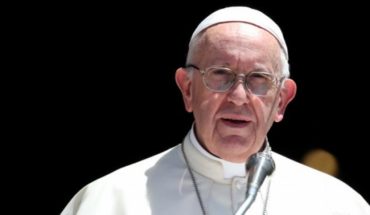Since the symbolic collapse of ’68, the country has gone through nine crises and none has served to rebuild a new post-revolutionary consensus. Today we have more democracy, but less democratic society. This year’s elections will affect 93.7% of the Republic, but to continue reseating the old priista apparatus of power: system/regime/state/Constitution.Today there is not even an alternative flight plan. In 2000, faced with the partisan alternation in the Presidency of the Republic, allies of Vicente Fox forced the president to focus a transition to a new model of republic, but the task was assigned to Porfirio Muñoz Ledo, an accommodation of the old regime without any idea of the theoretical model of transitions. In the end, his report was thrown away and Muñoz Ledo went off as ambassador somewhere in the world.
Stay informed about what matters most to you
Get the most relevant news of the day in your e-mail
Thank you for subscribing!
Check your inbox to confirm your email and start getting the latest news
Take advantage and take the next step
Get our news alerts so you don’t miss anything
Receive notifications
Not bad! You’ve subscribed to notifications
Set up and choose your preferences
Set up notifications
Enter your e-mail
Subscribe
Subscribing involves accepting the terms and conditions
Not bad! You’ve subscribed to notifications
Set up and choose your preferences
Like never before, the astros line up changes in 30 of the 32 entities of the republic: the entire federal chamber of deputies, 15 governors, 500 federal deputies, 1,926 mayors and 15,107 rejoicings. And faced with the challenge of debating the end of the PRI system/regime/state/Constitution that remains in place and taking advantage of election relays for a general transition, the whole debate has focused on the candidacy of the morenist Félix Salgado Macedonio and the feminist accusations against him. The parties have shreded to their minimum expression and their practical usefulness is only as a placement agency, leaders seek to consolidate their parcels of power, society recognizes in fact that there is no real citizenship and the media fell into the trap of confrontation and not analysis or debate. The country leaving next June 6 elections will be the same as the 5th, the same country that came out of the 2018 election, the same country that voted for the PRI in 2012, the same country that took Fox to Los Pinos, the same one that took the absolute majority from the PRI in 1997, the same one that erupted in euphoria with the Zapatista uprising of Deputy Commander Marcos as the sympathetic leader of the national protest, the same one who dreamed of change in 1988 and the same one who wasted the great crisis of 1968.The great crises of 1968 to date were resolved in favor of the old system/regime/state/Constitution founded by the PRI in 1917. The priista system entered into a self-political logic (Maturana and Varela) of autonomous reorganization to modify itself, without any social or partisan intervention. The crisis was missed opportunities: politics with the repression of ’68, economic pacts in 1976, corporate pacts in 1982, legitimacy in 1988, governance in 1994, hegemony in 1997, PRI in 2000, new opportunity lost in 2012 and internal collapse in 2018. In 2021 the system/regime/state/constitution was more priistic than in 1968. And all happy, angry, but happy, irritated, but waiting for benefits. The tenth crisis is the worst: of frustrated expectations. The elections will take place amid four additional crises whose solution requires major surgeries: the health crisis with a vaccine that does not arrive, the economic crisis with a GDP of 2% per annum for the next ten years, the political crisis with the reconstruction of the Priista presidential system and its correlative centralizing state, and the social crisis of a passive society awaiting Godotiana’s return from old Priista populism. In this scenario, the 2021 elections will be irrelevant; massive, but no reorganizator effects. Officials will change and political parties will be rearranged, but with their old political practices of the long priista era. The dissenting social sectors were again deceived by the power structures: they will be the same protagonists as always. Dissident society was unable to enter institutional electoral structures and there will be new popular election officials who will remain the same to continue to function as always. The screaming will still be on the street, but there will still be no one there who listens.-0-Politics para dummies: Policy should be used to fix system/regime/state/constitution changes, not to endorse existing ones. The content of this column is the sole responsibility of the columnist and not of the newspaper that publishes it.
Original source in Spanish





